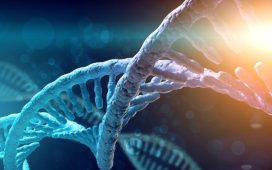Reductions in time spent with dyskinesia, time spent in the off state, and in dopaminergic drugs sustained for more than 15 years
THURSDAY, June 3, 2021 (HealthDay News) — For patients with Parkinson disease (PD), deep brain stimulation of the subthalamic nucleus (STN-DBS) is effective beyond 15 years after implantation, according to a study published online June 2 in Neurology.
Francesco Bove, M.D., from CHU Grenoble Alpes in France, and colleagues used data from before surgery, at one year, and beyond 15 years after surgery to evaluate the long-term effects of bilateral STN-DBS in patients with PD. A total of 51 patients with 17.06 ± 2.18 years of STN-DBS follow-up were recruited.
The researchers found that the time spent with dyskinesia and time spent in the off state were reduced by 75 and 58.7 percent, respectively, compared with baseline. In addition, there was a 50.6 percent reduction in dopaminergic drugs. There was improvement in the Parkinson Disease Quality of Life Questionnaire total score and in the emotional and social function domains by 13.8, 13.6, and 29.9 percent, respectively. During follow-up, there were few and manageable device-related adverse events.
“Our study also found that despite the natural progression of Parkinson disease and the worsening of some symptoms that become resistant to medications over the years, participants still maintained an overall improvement in quality of life,” one author said in a statement. “Future studies should continue to examine the benefits of deep brain stimulation over longer periods of time and in larger groups of people.”
Several authors disclosed ties to the pharmaceutical and medical device industries.
Editorial (subscription or payment may be required)
Copyright © 2021 HealthDay. All rights reserved.








